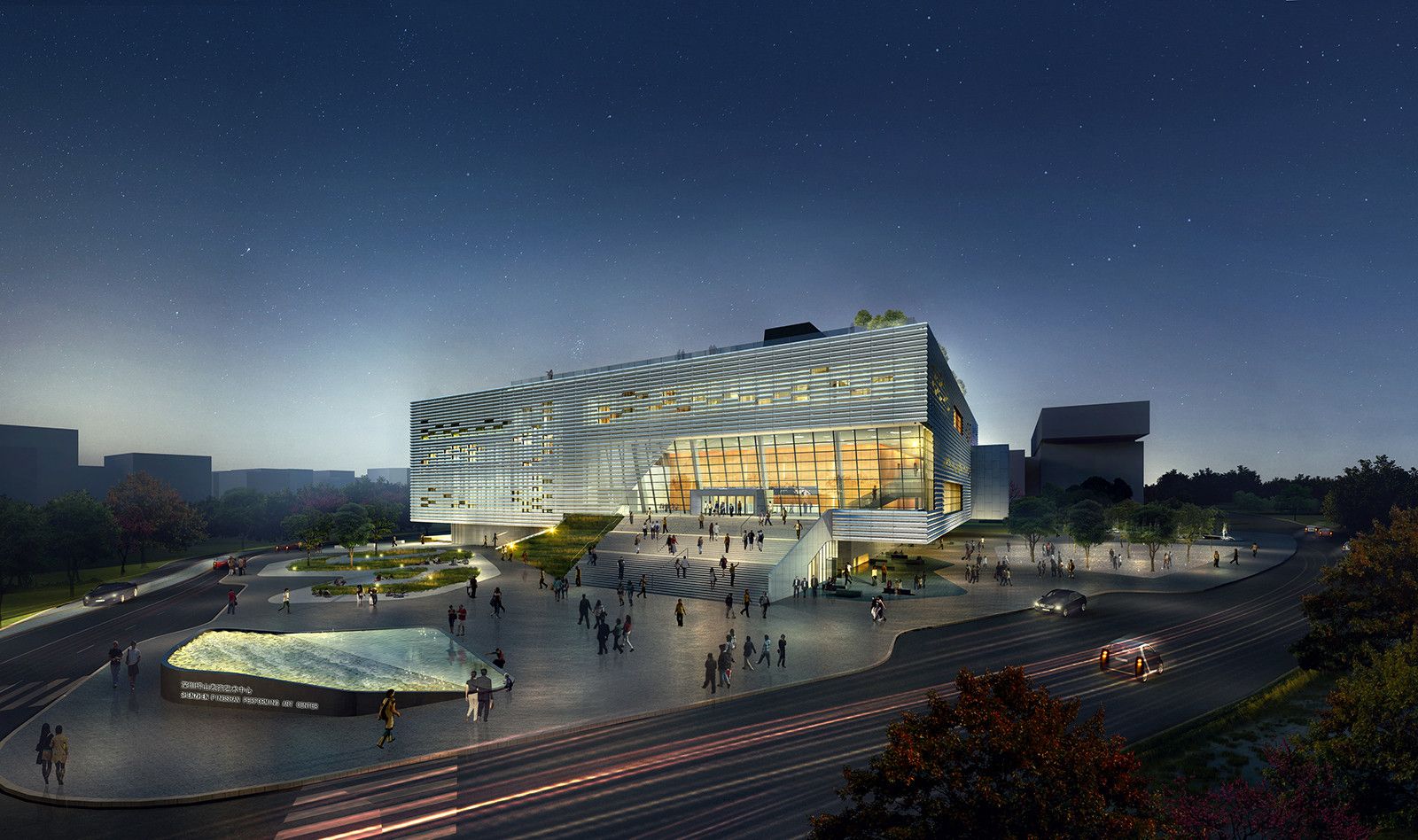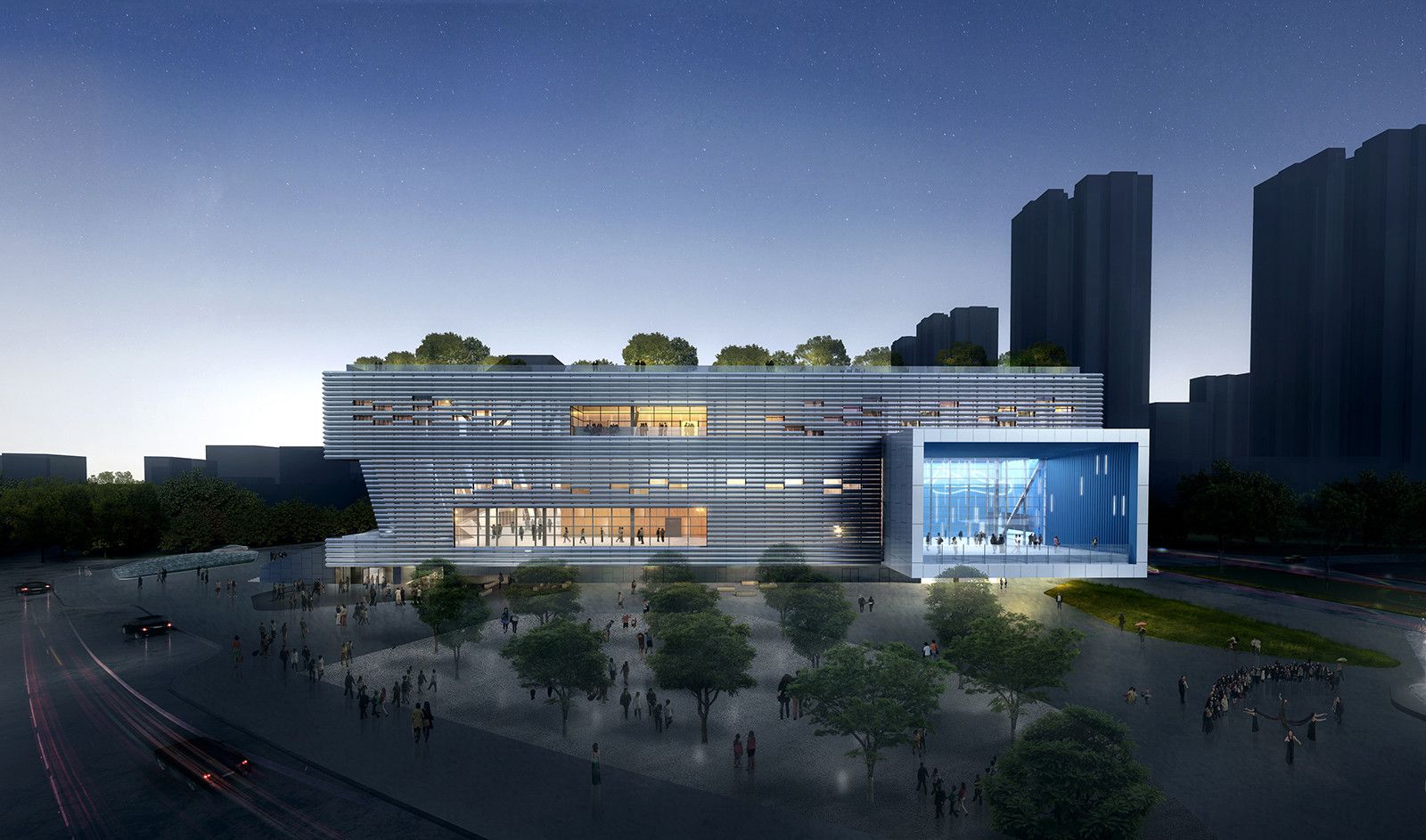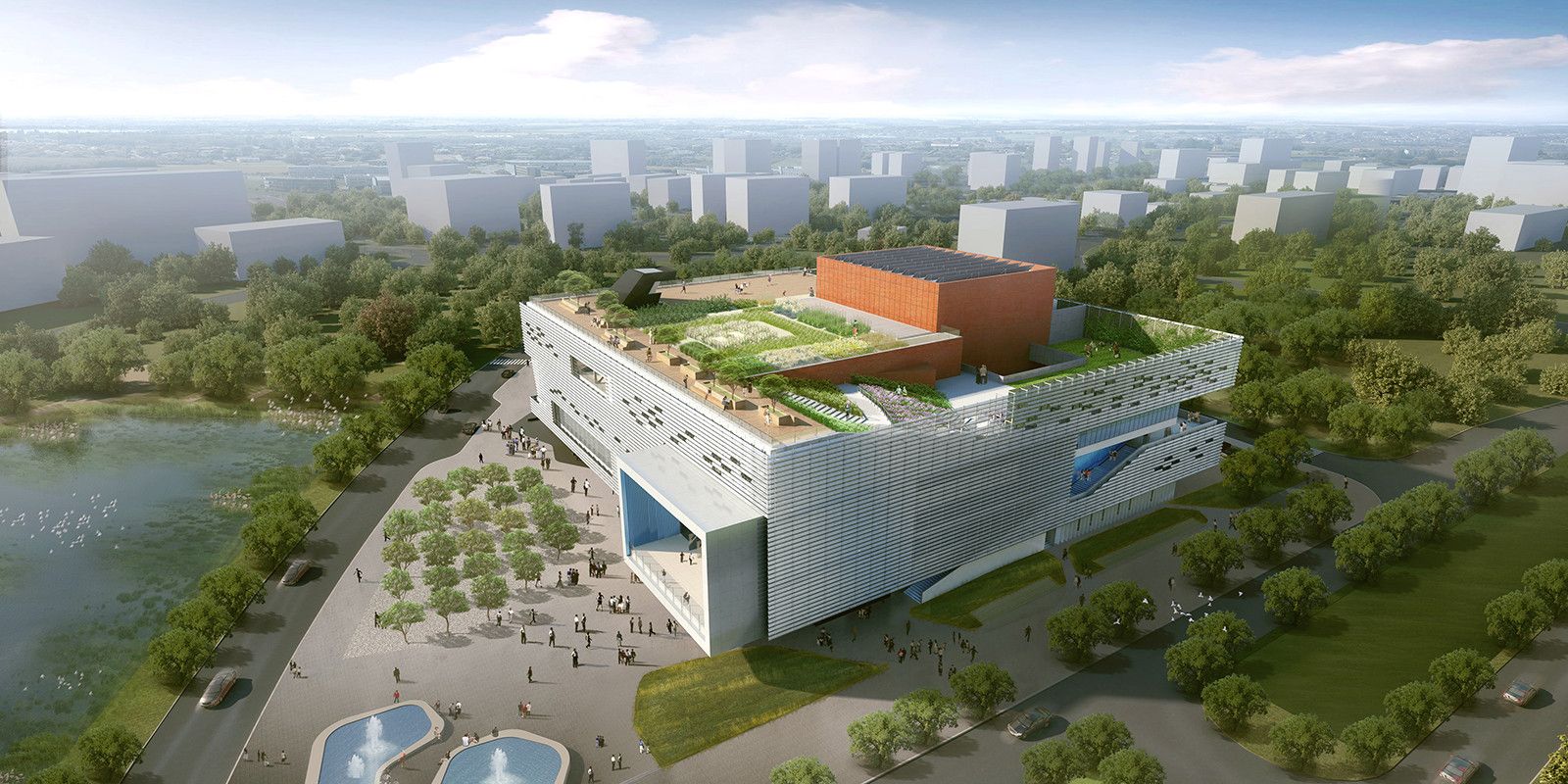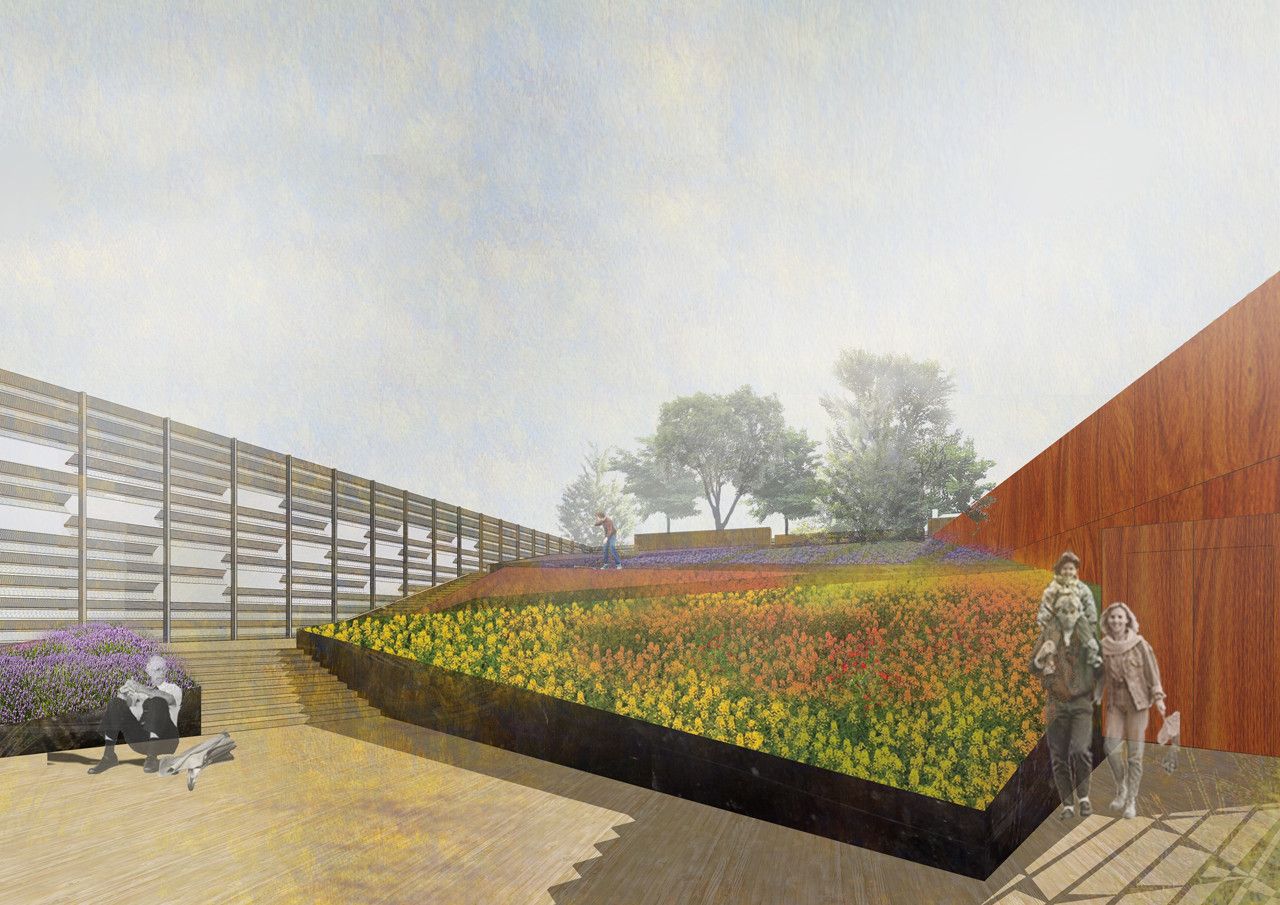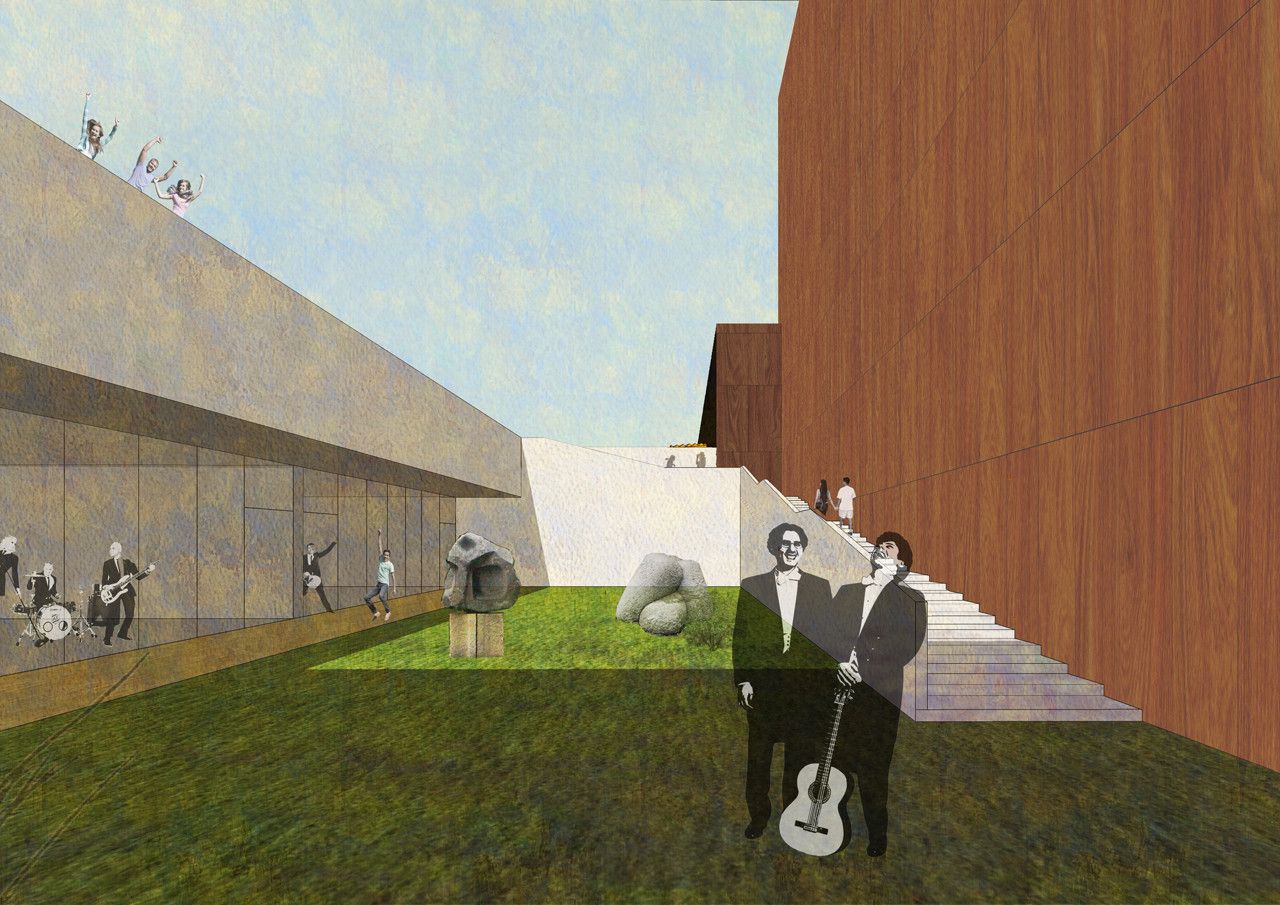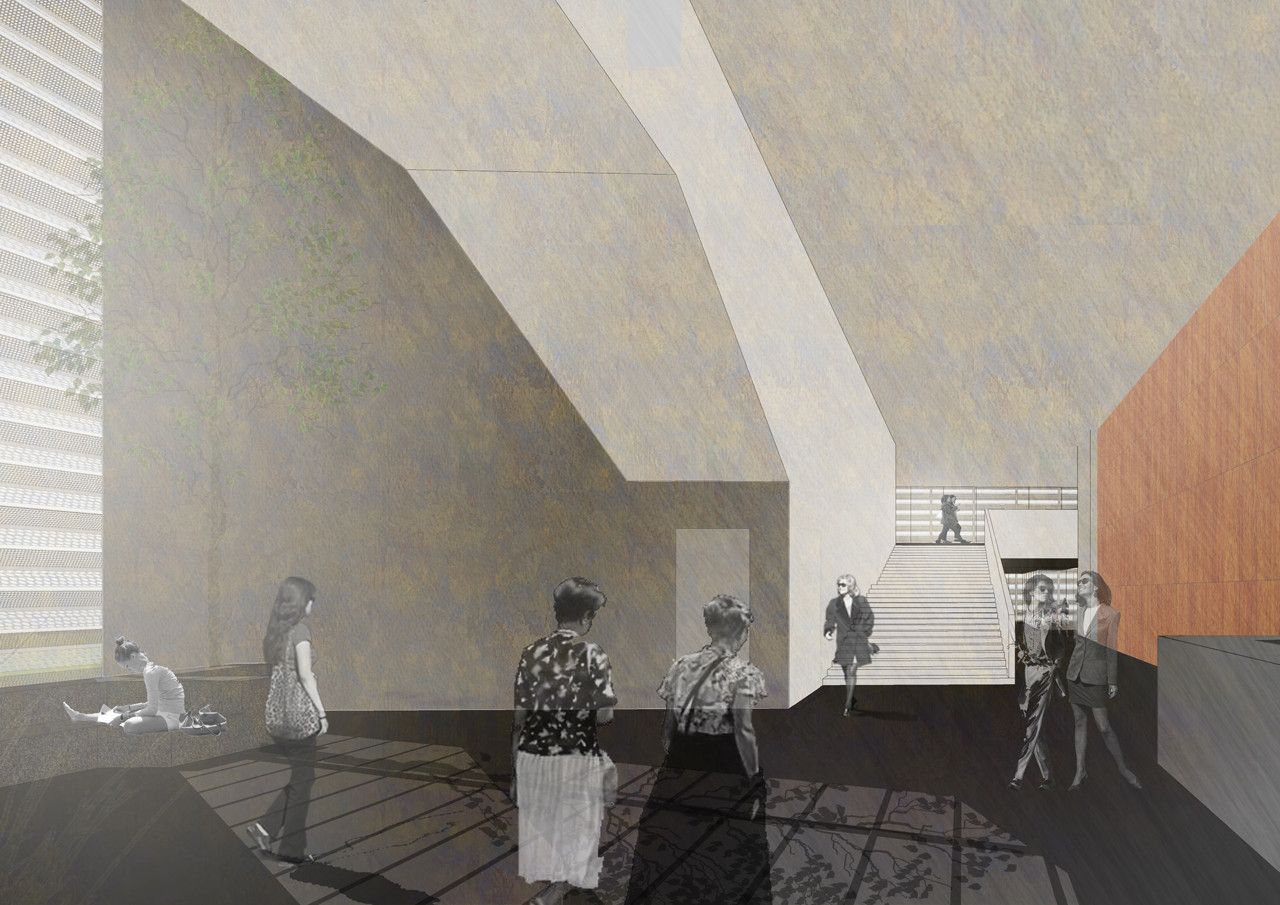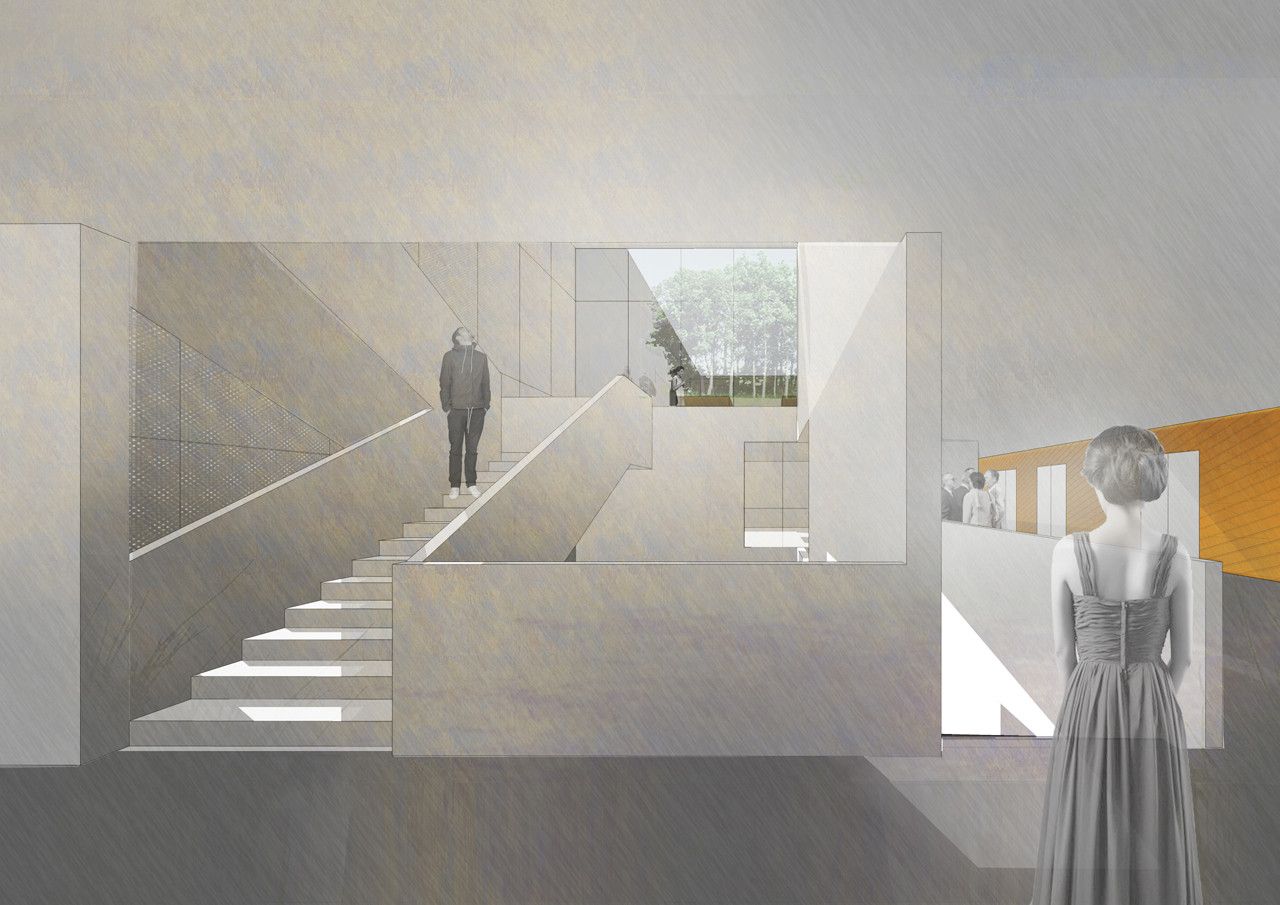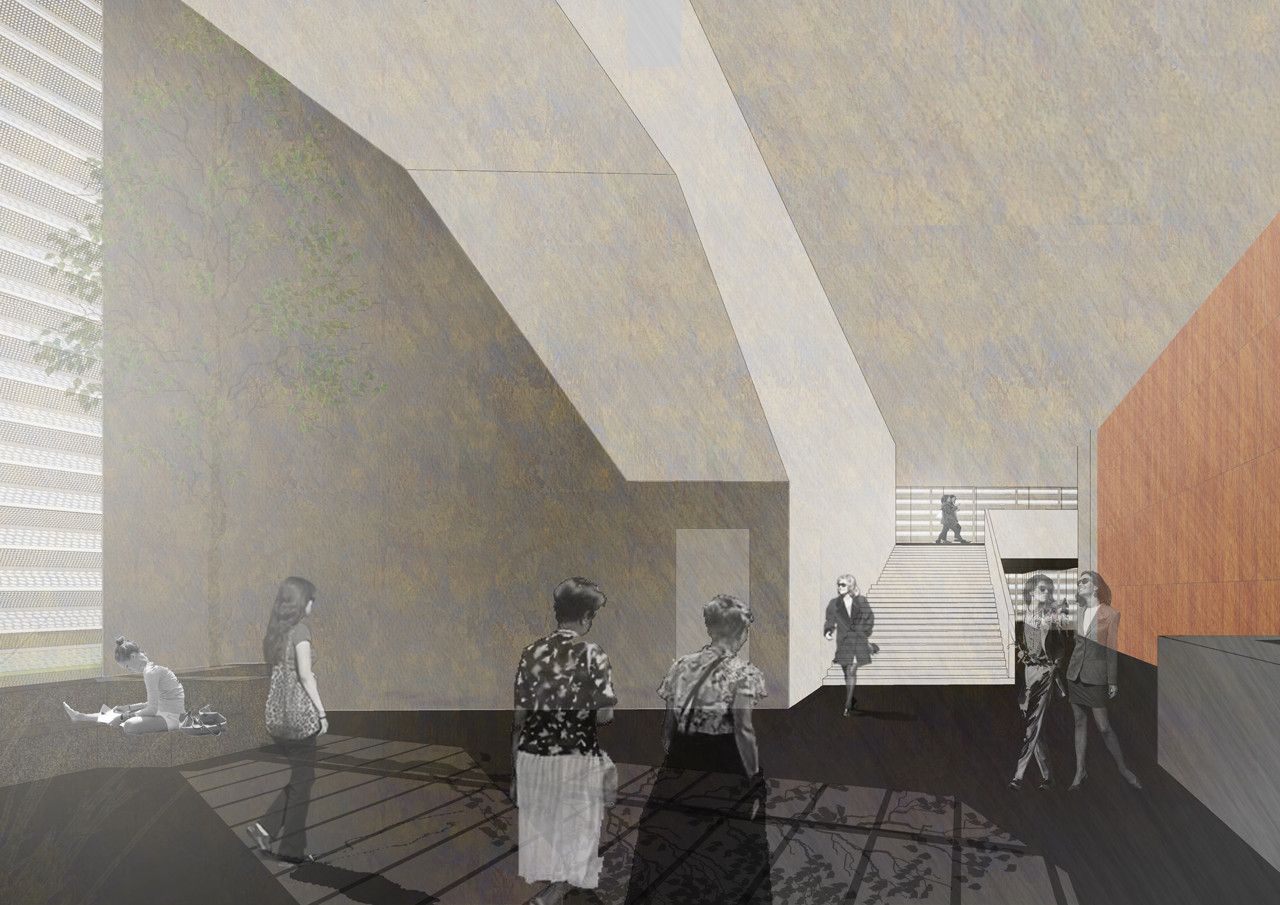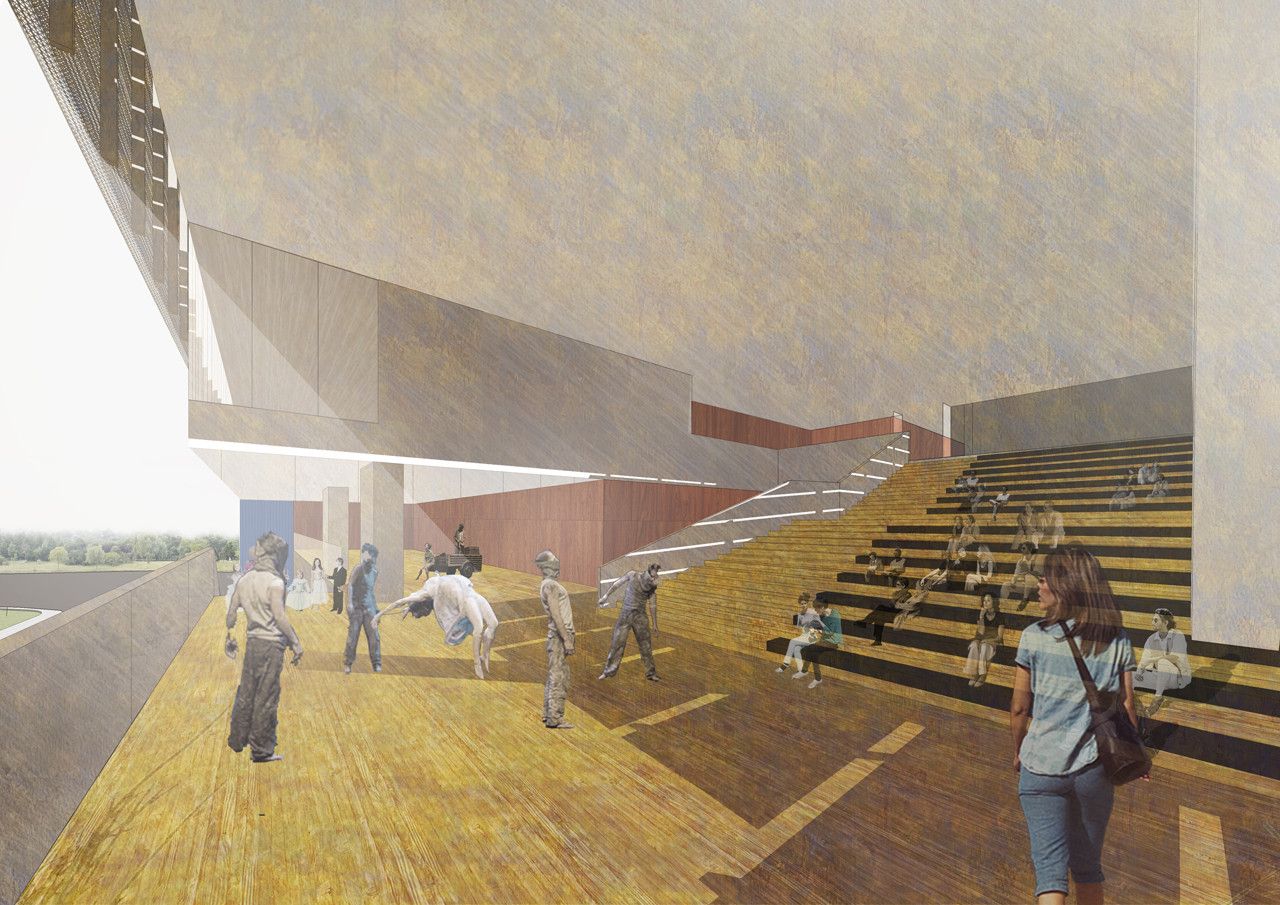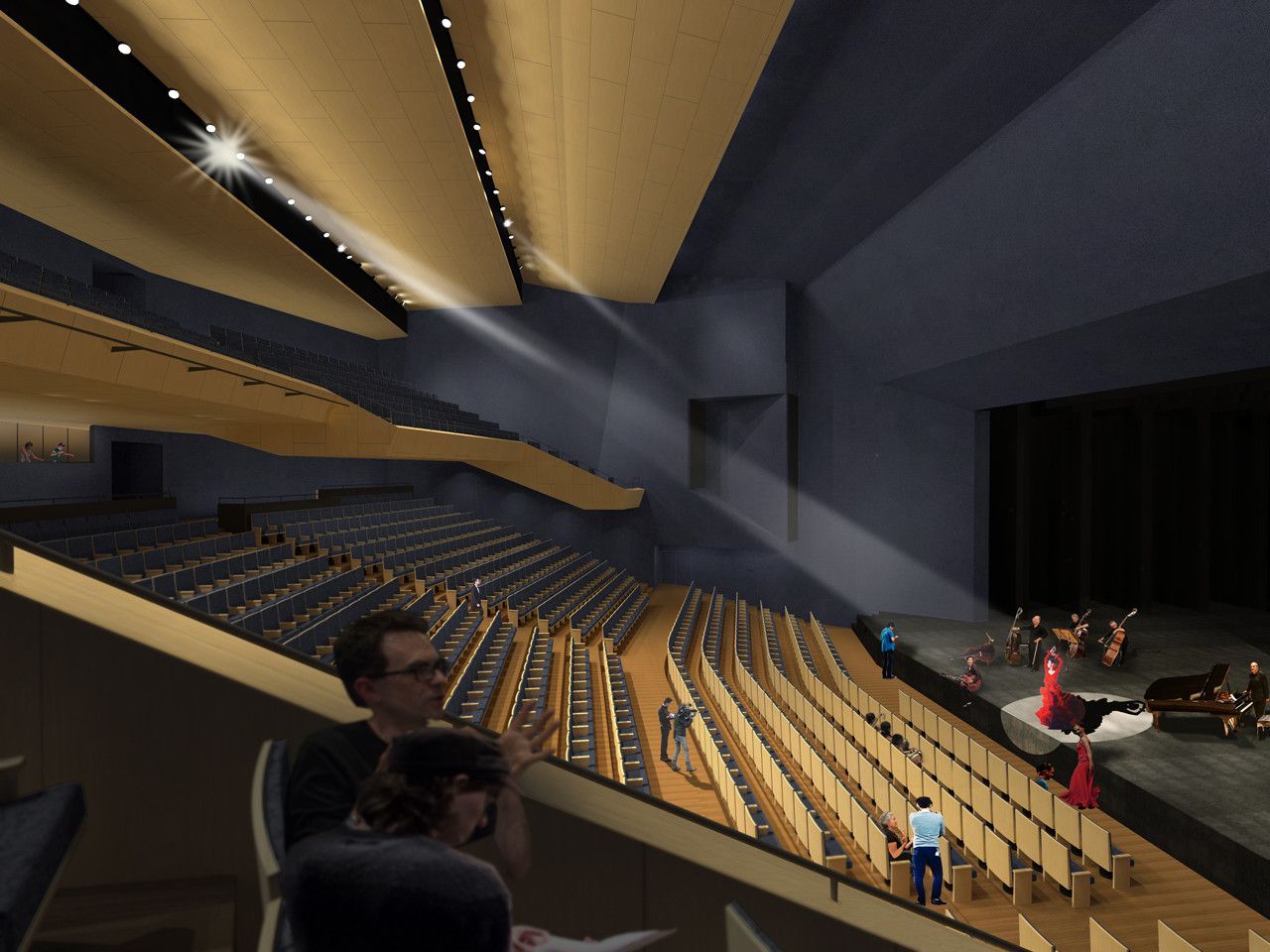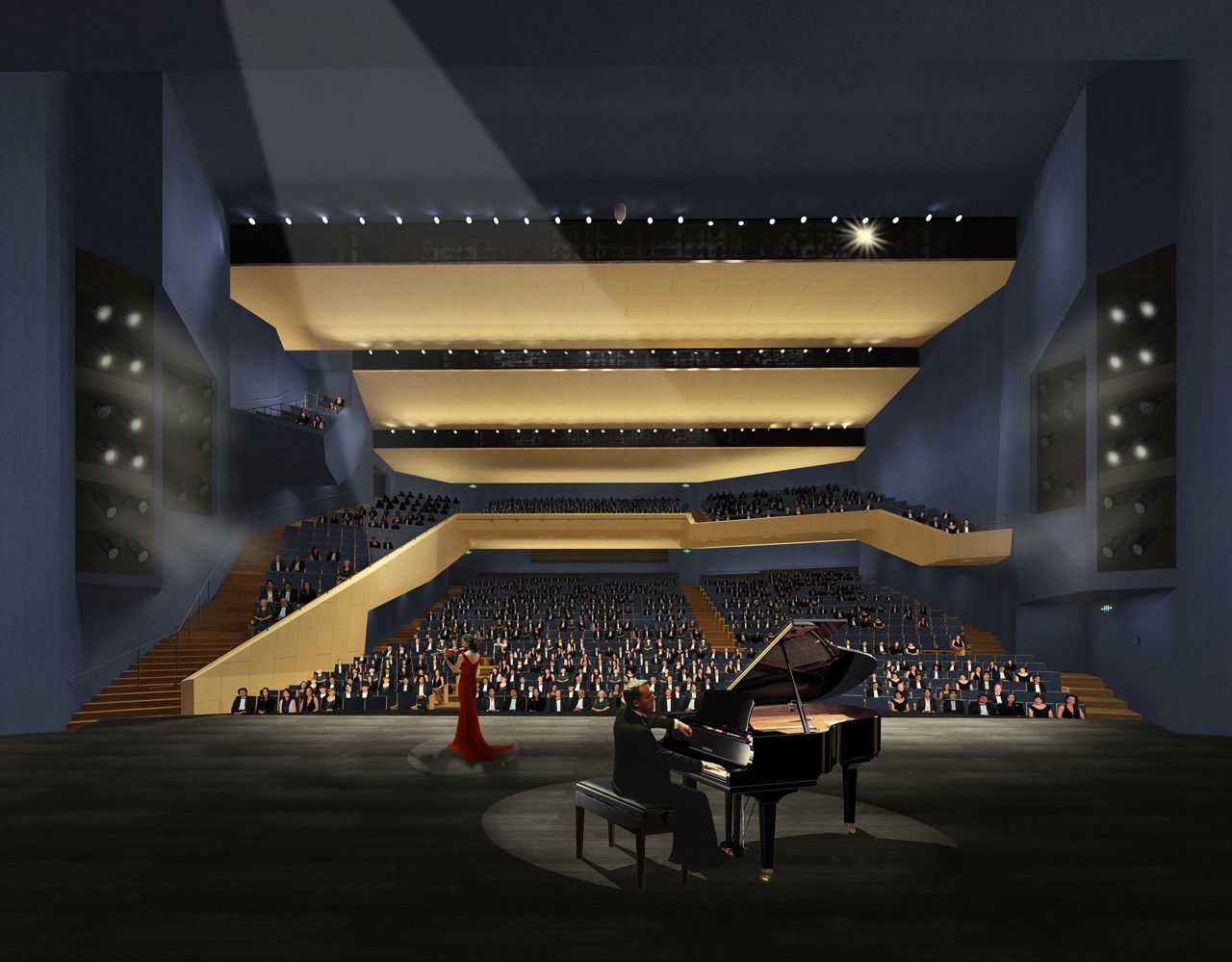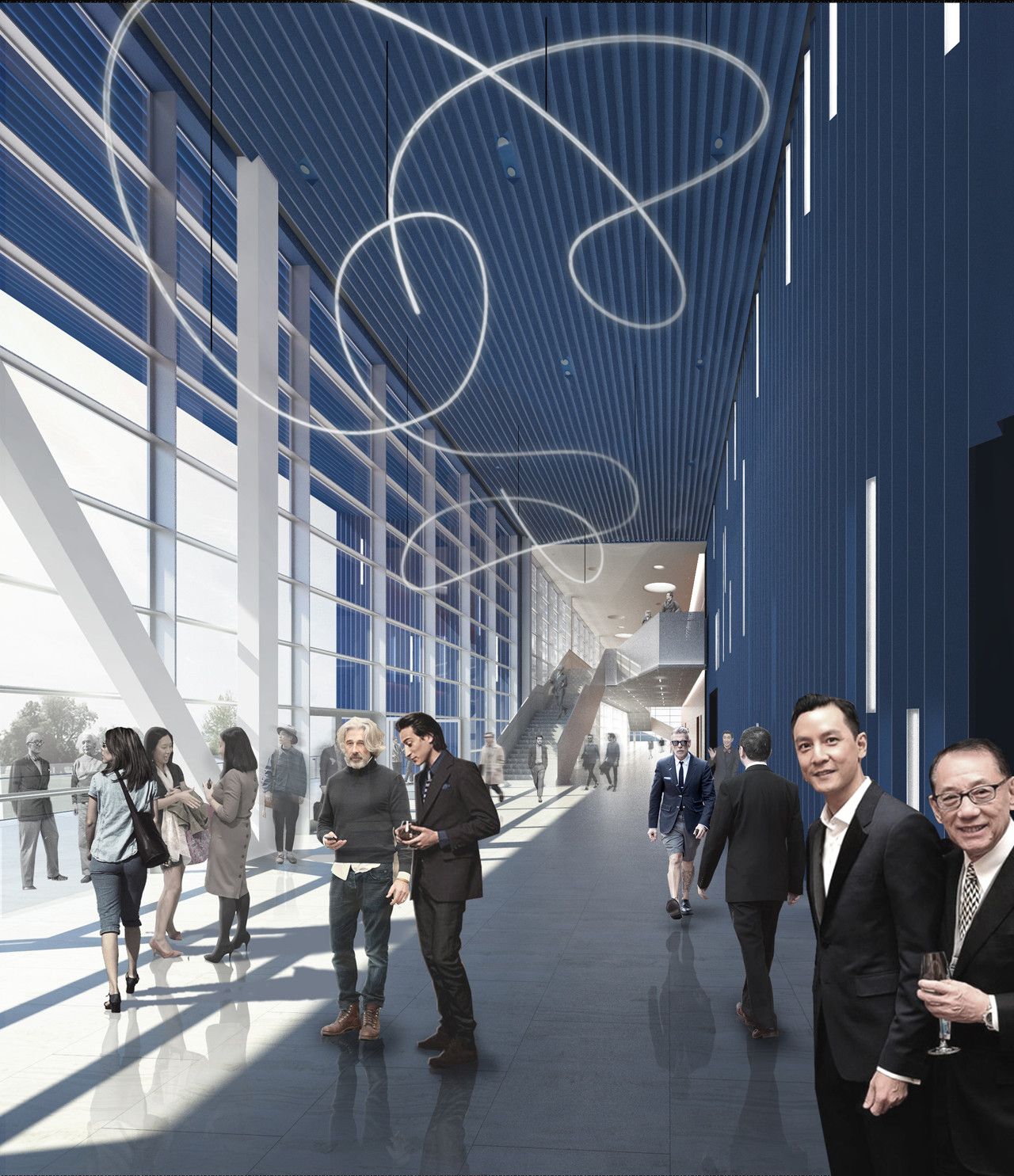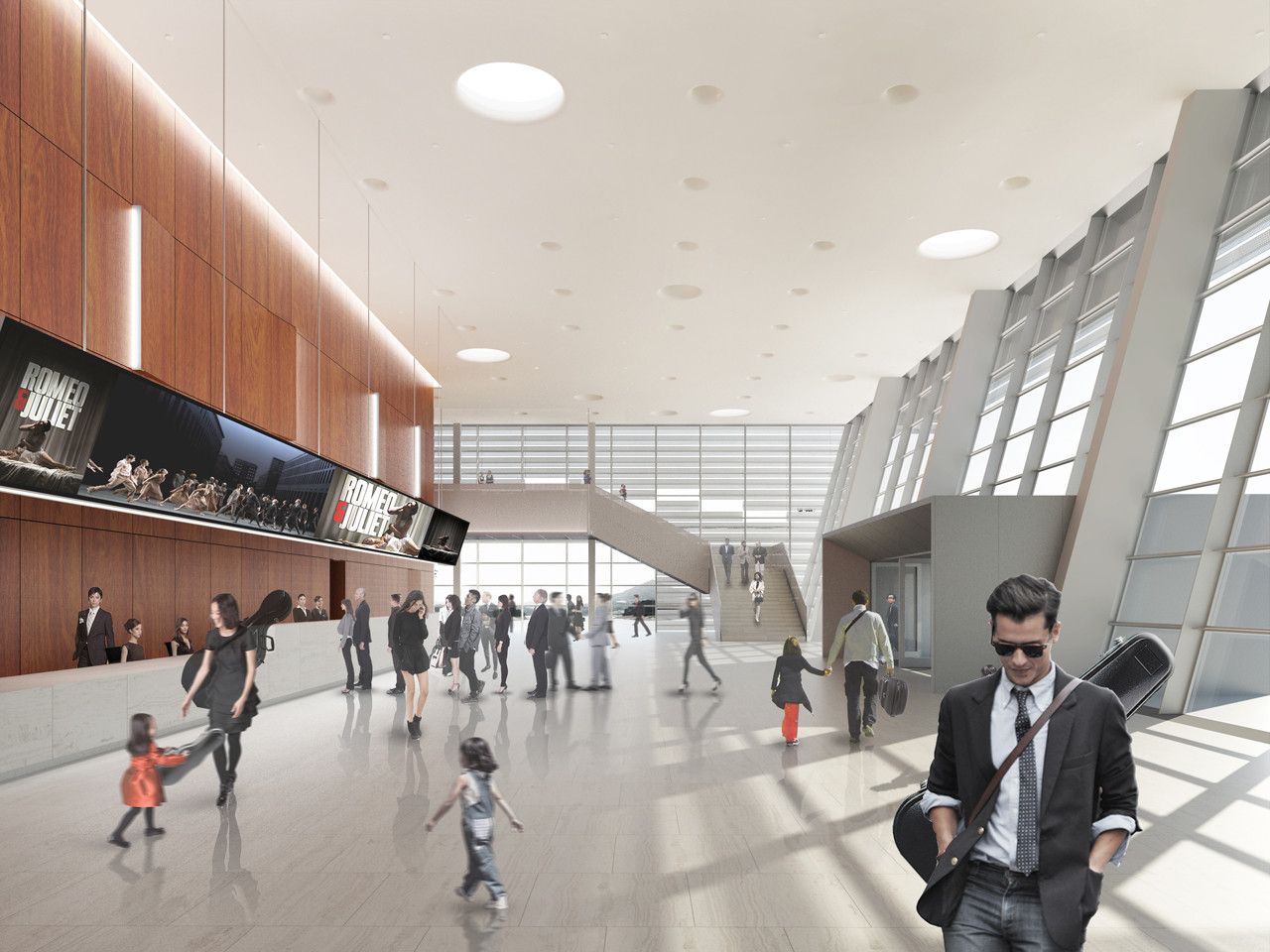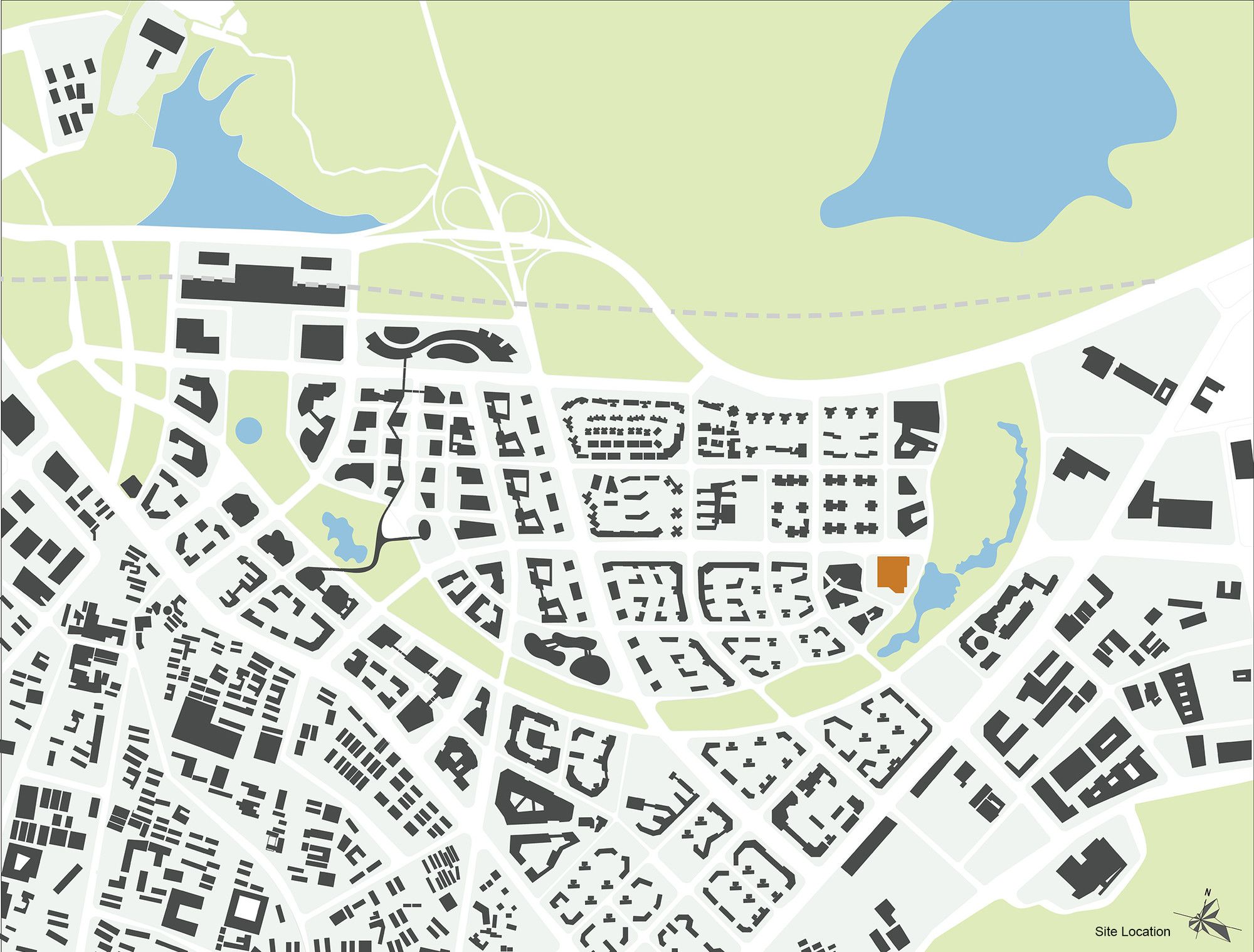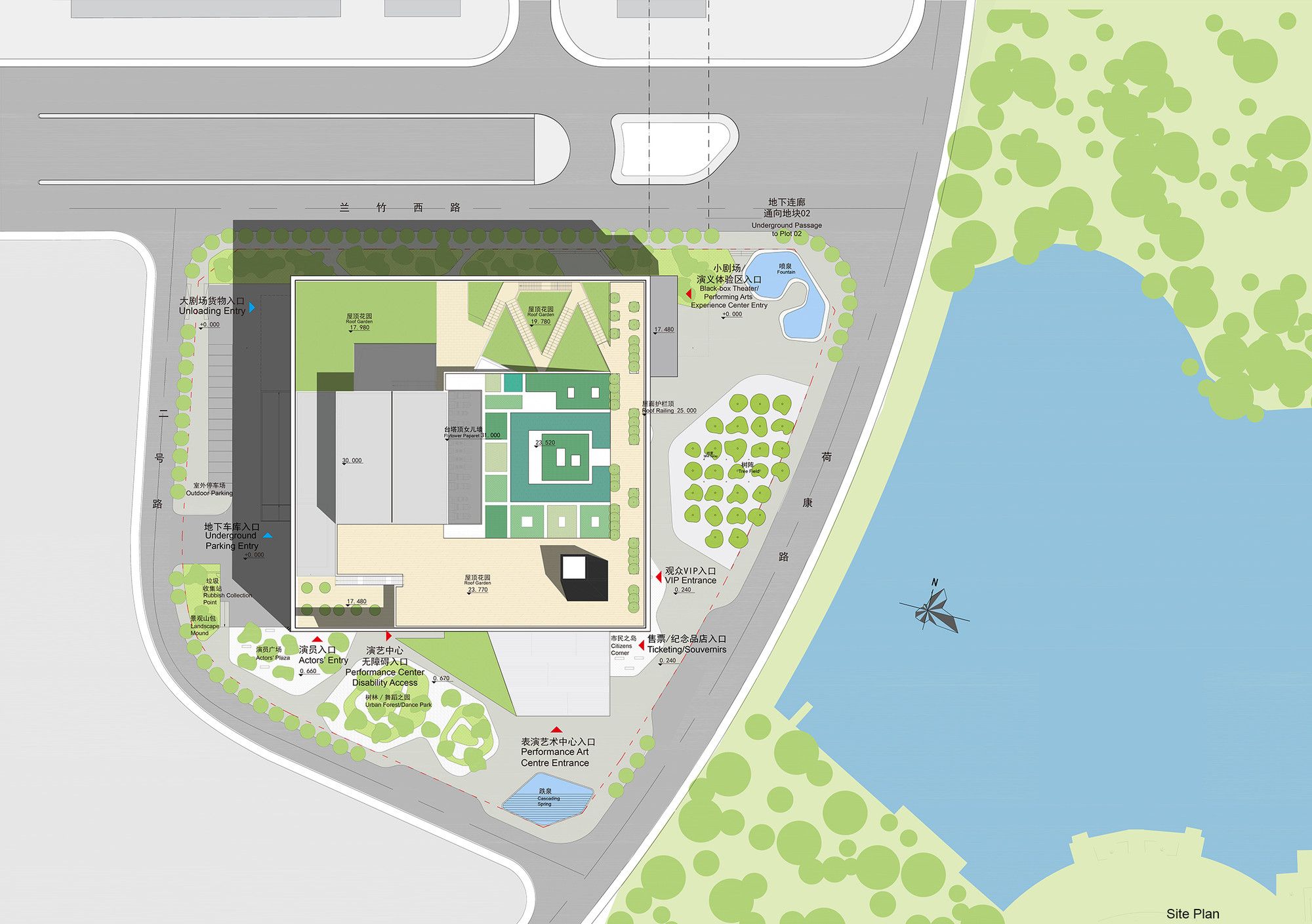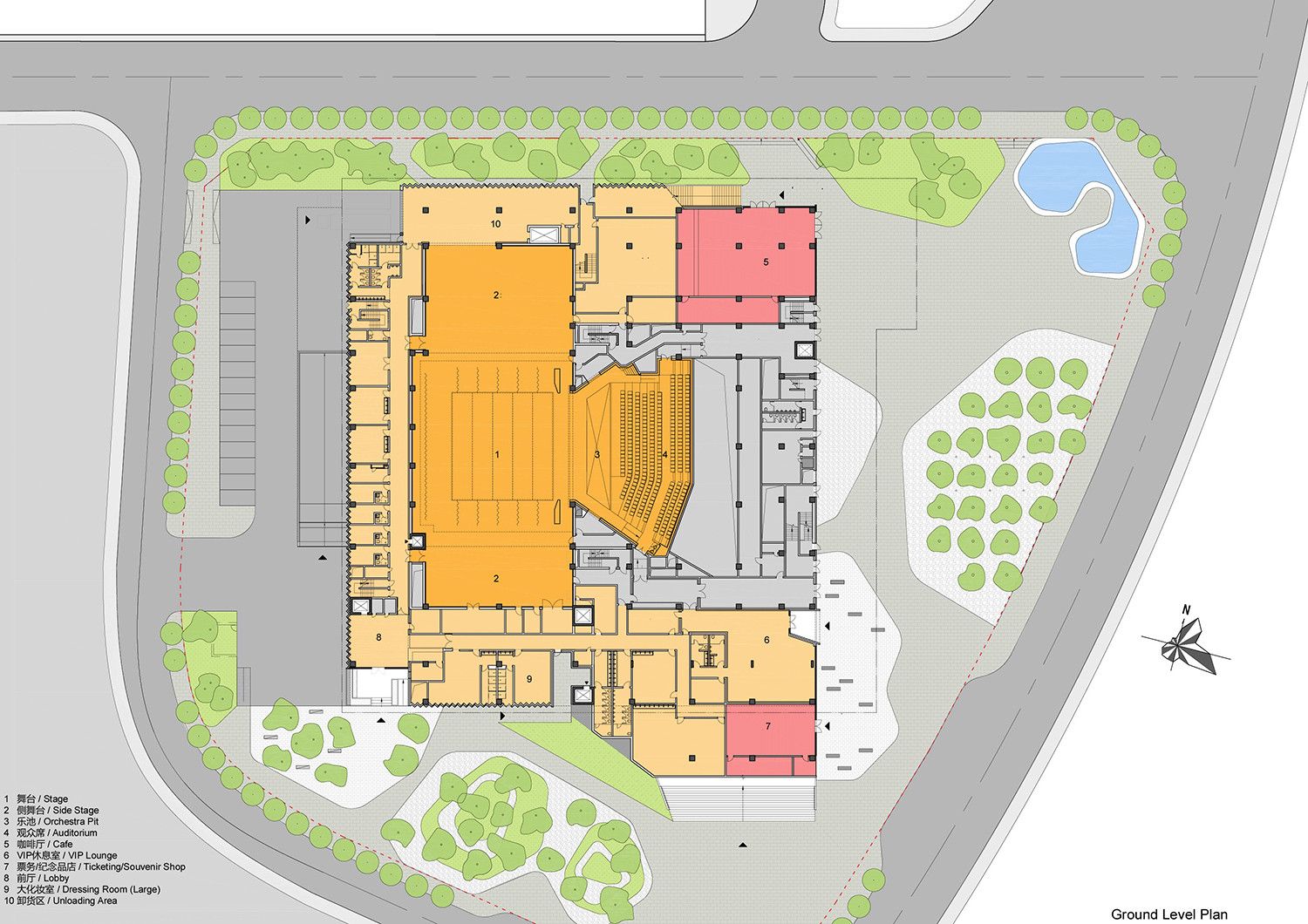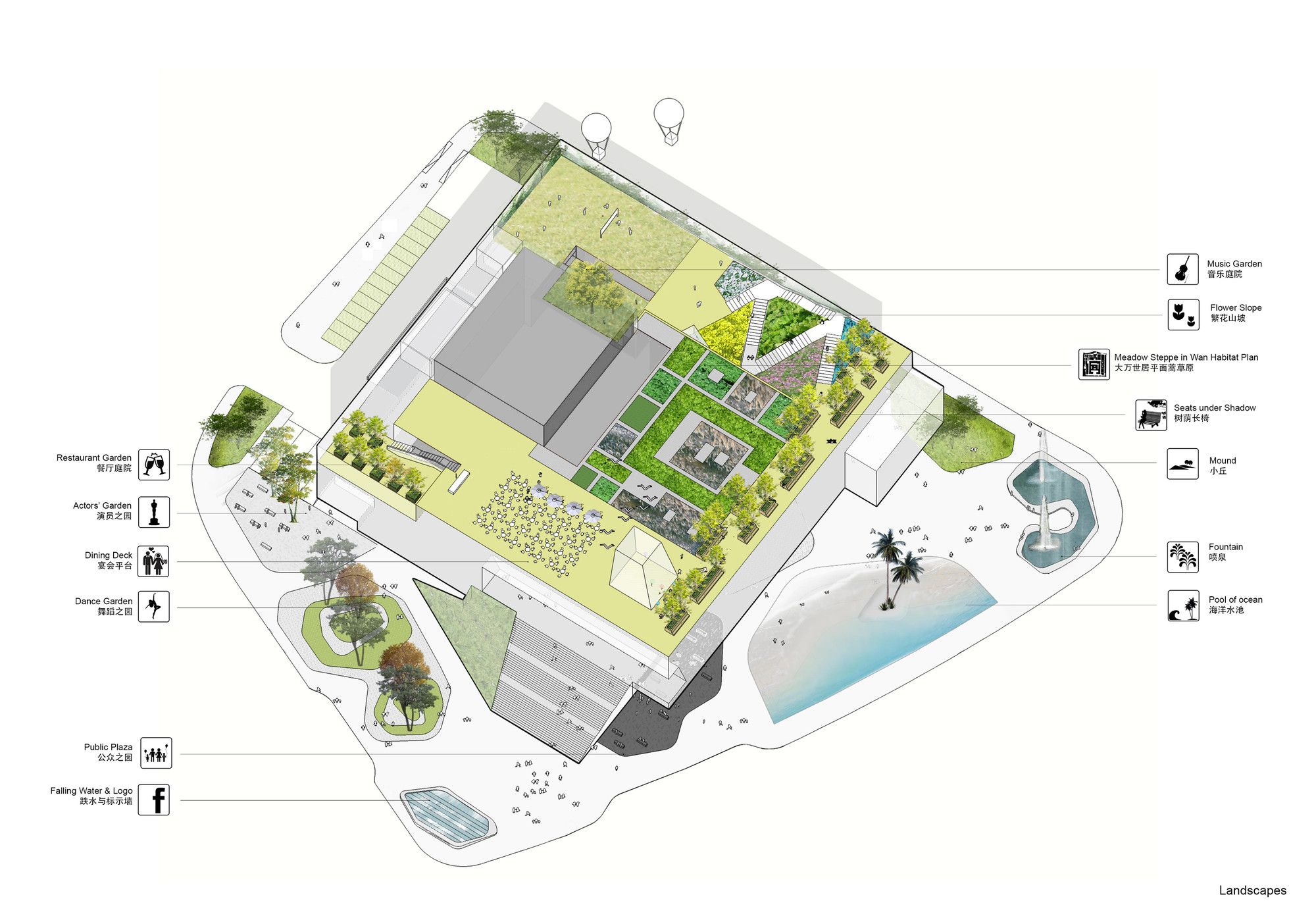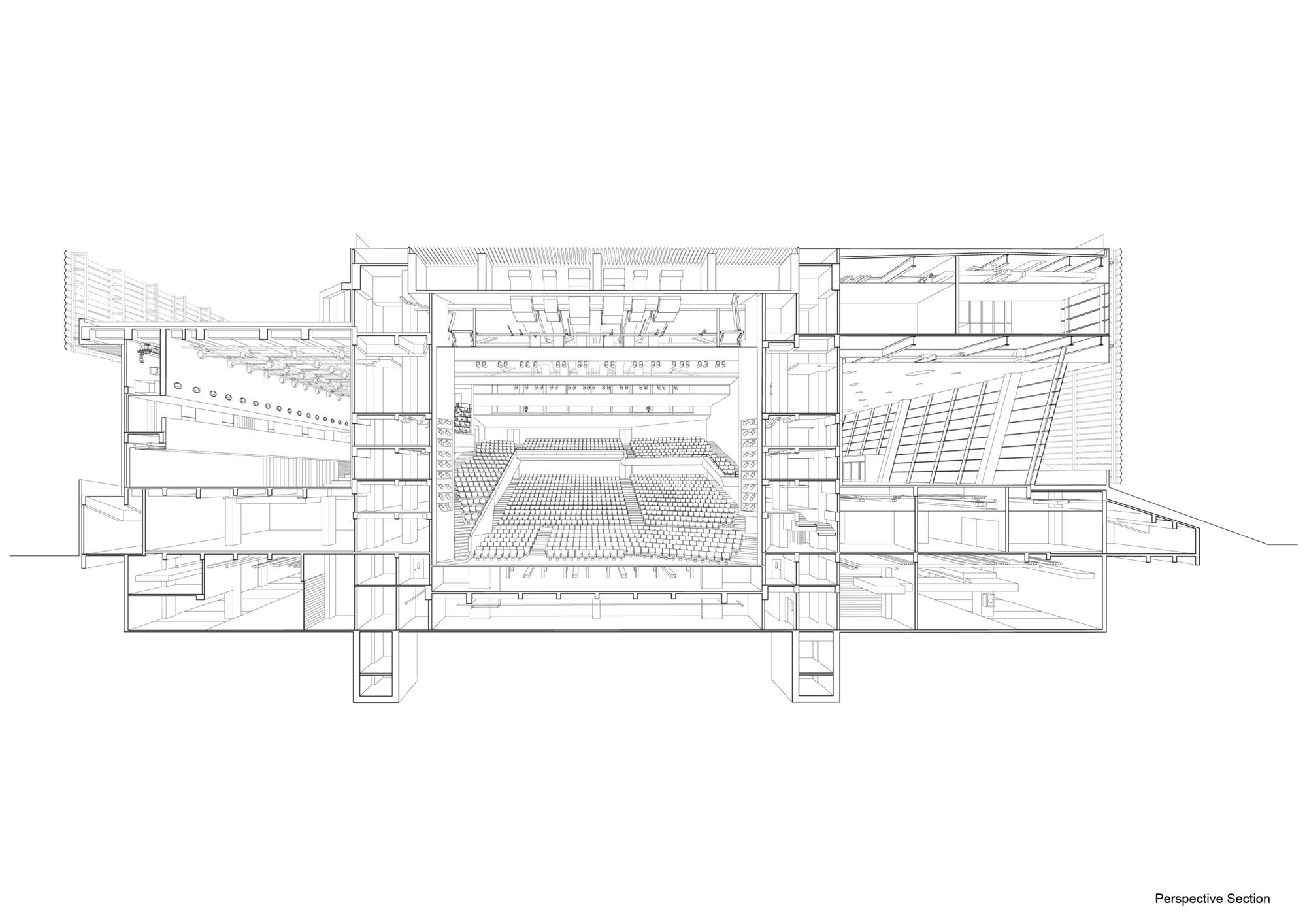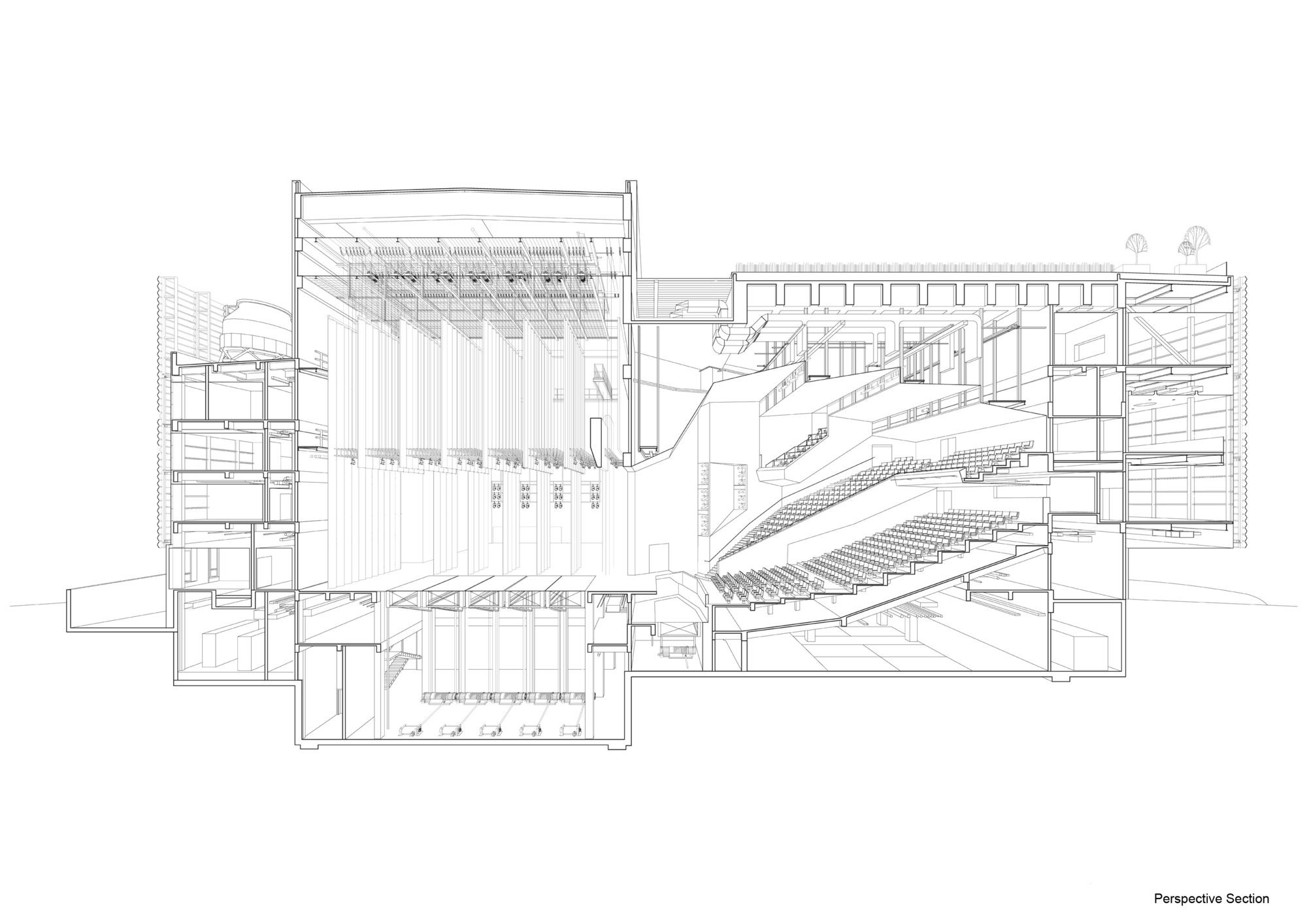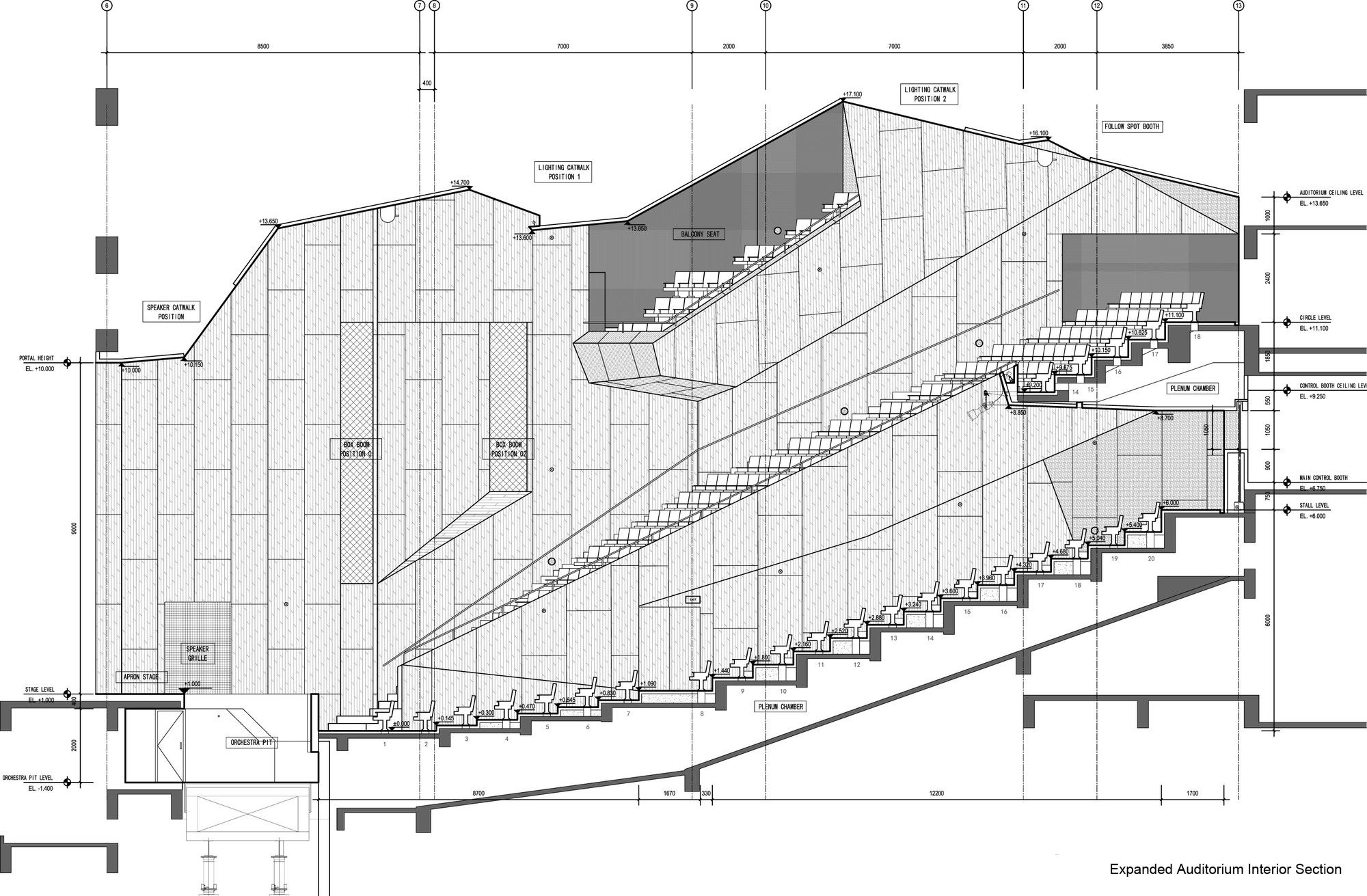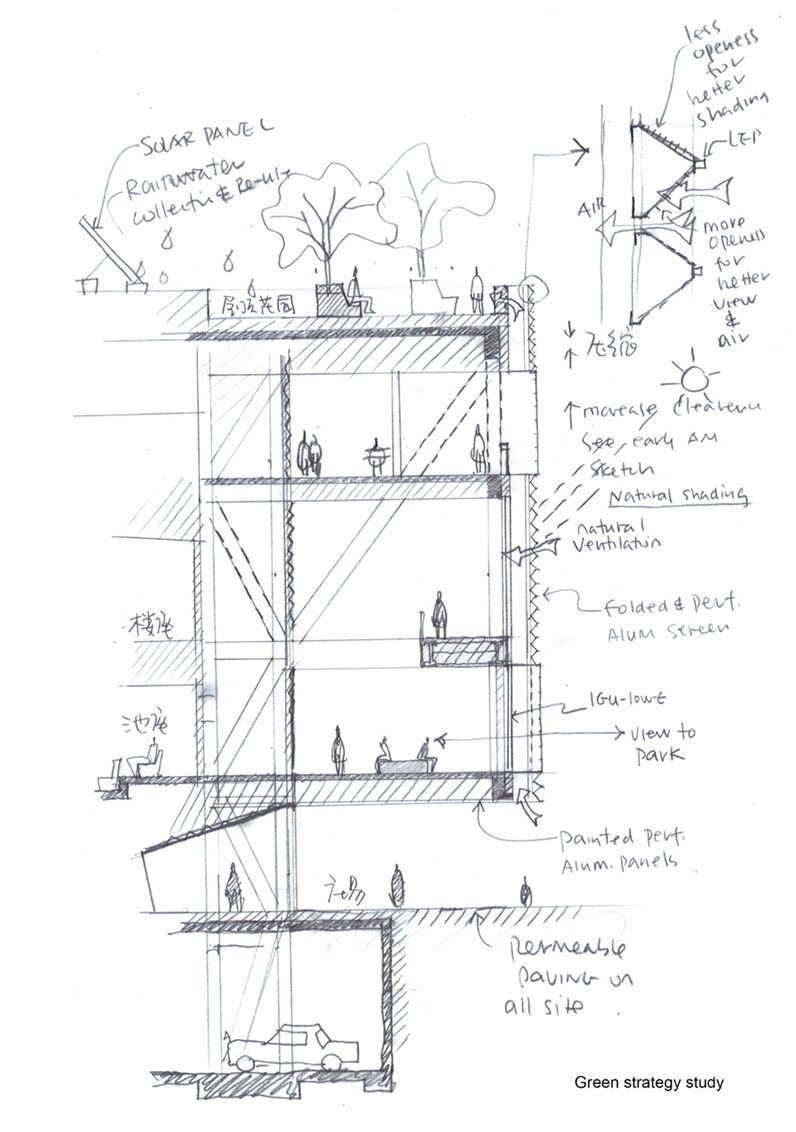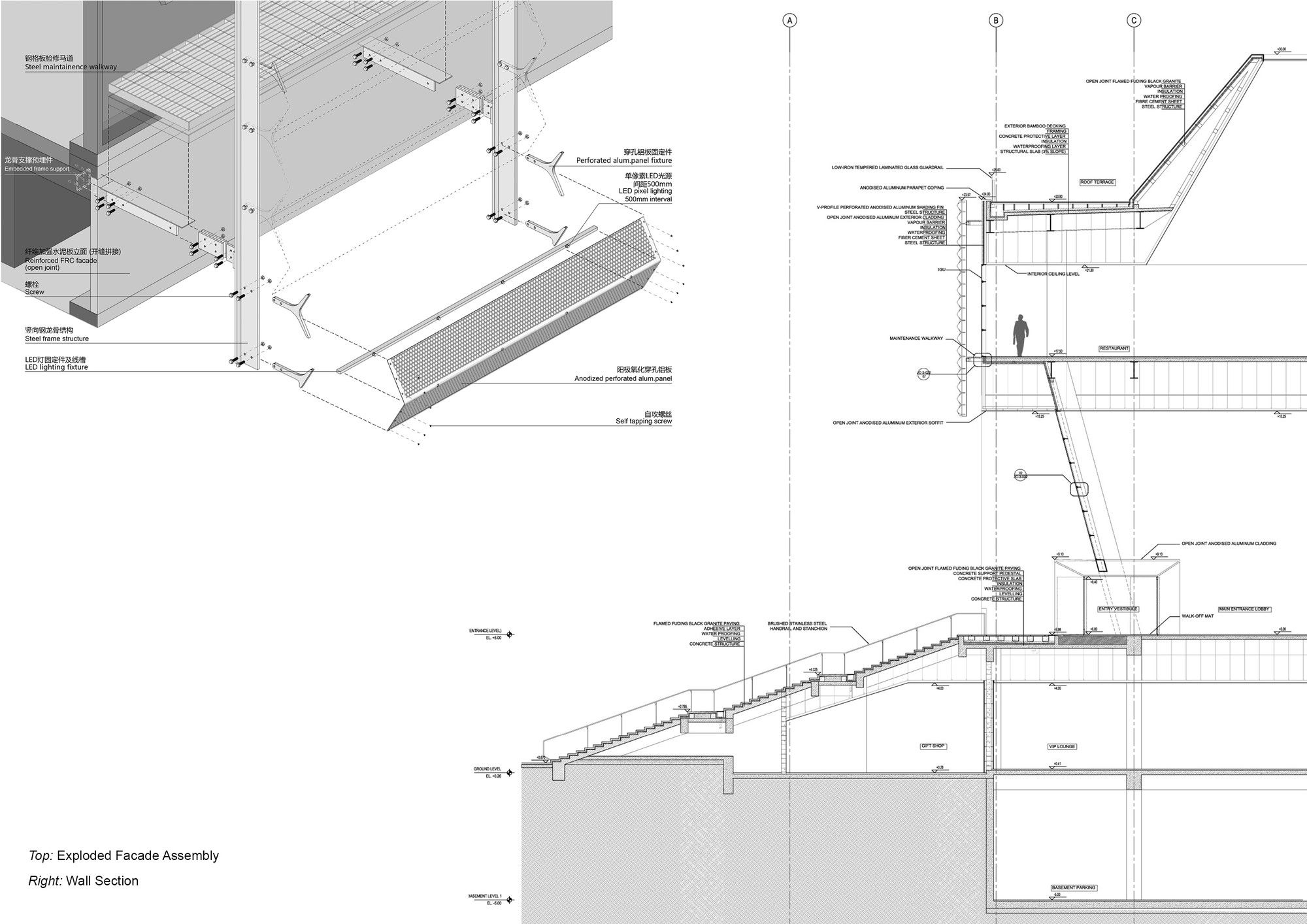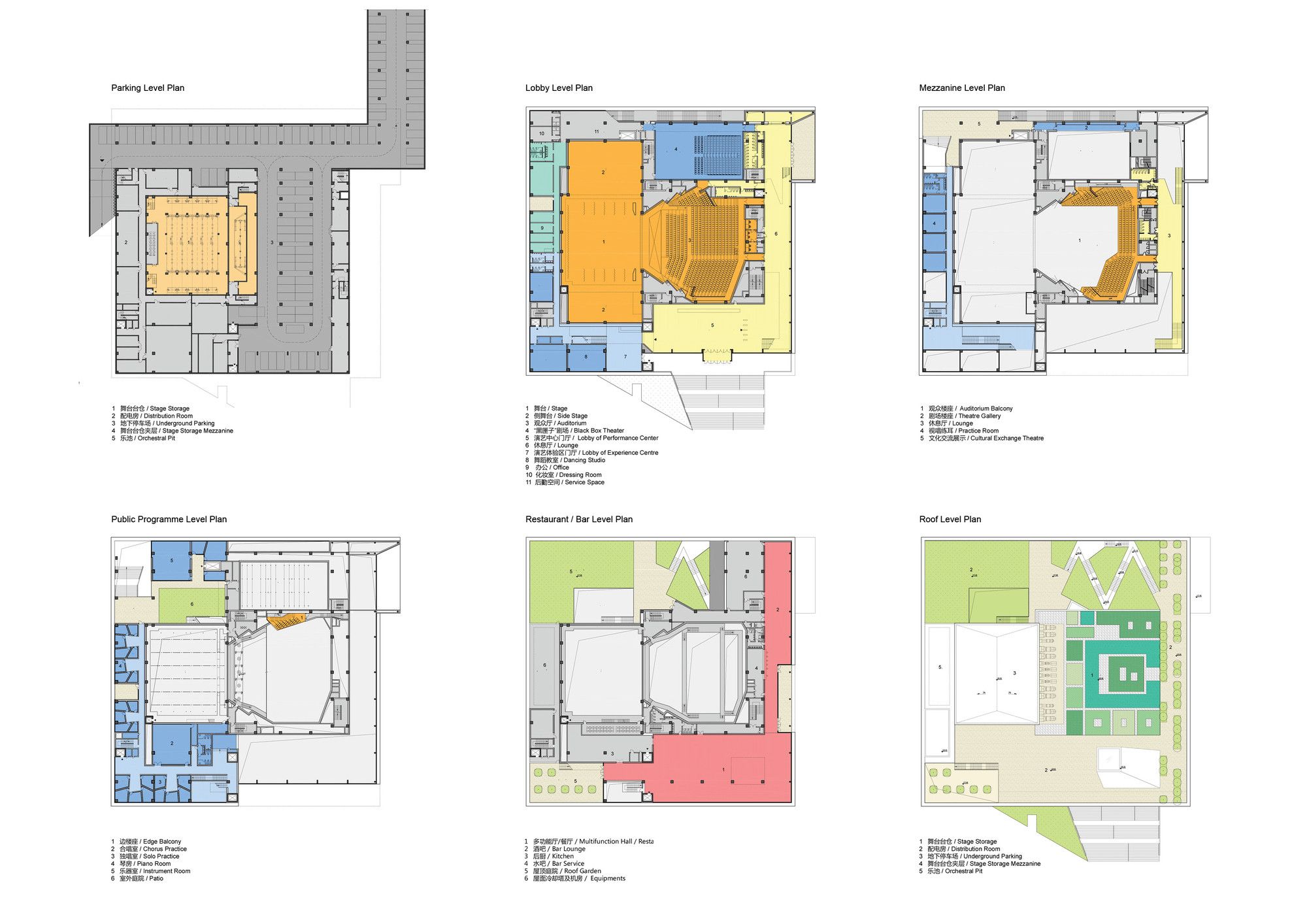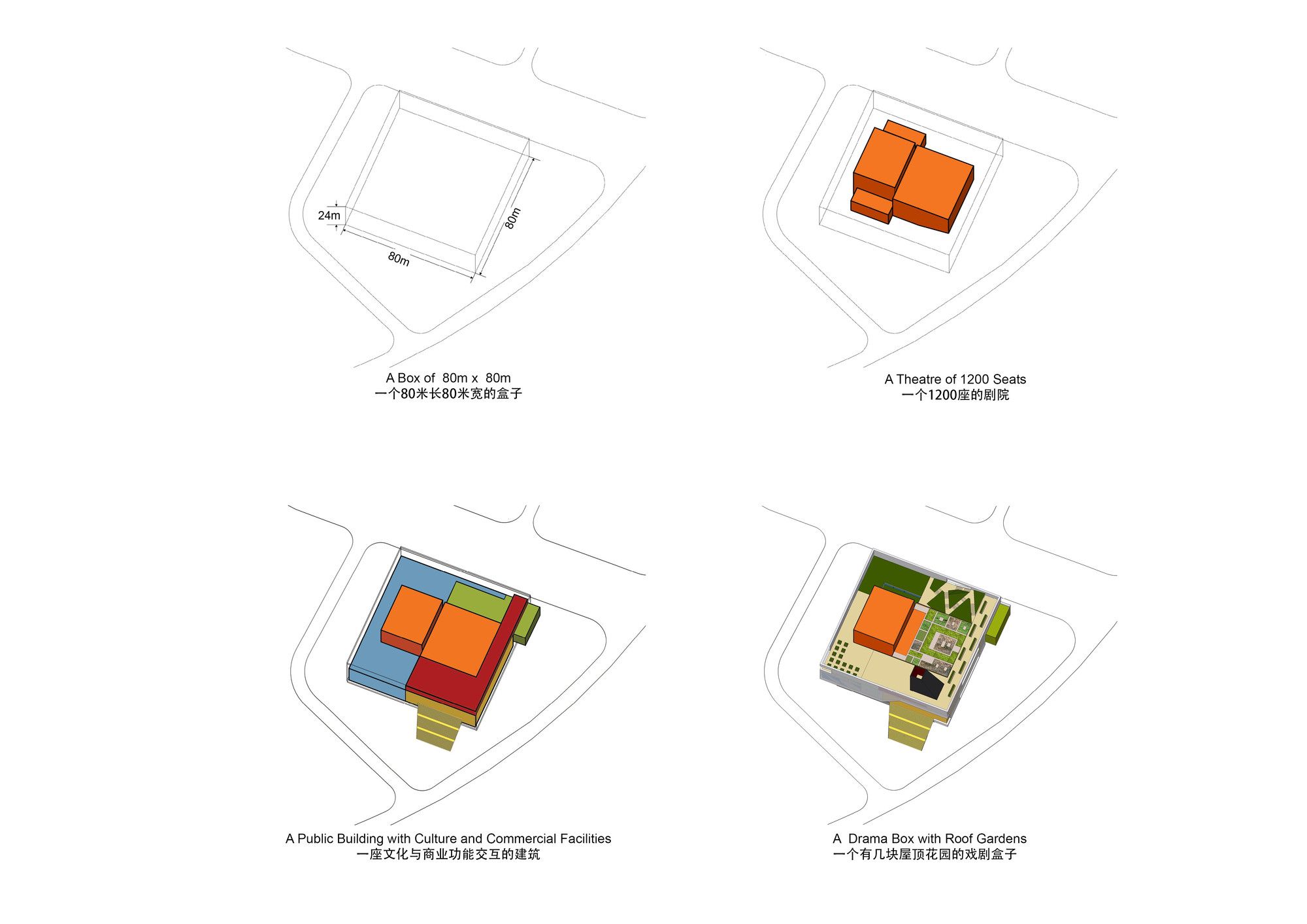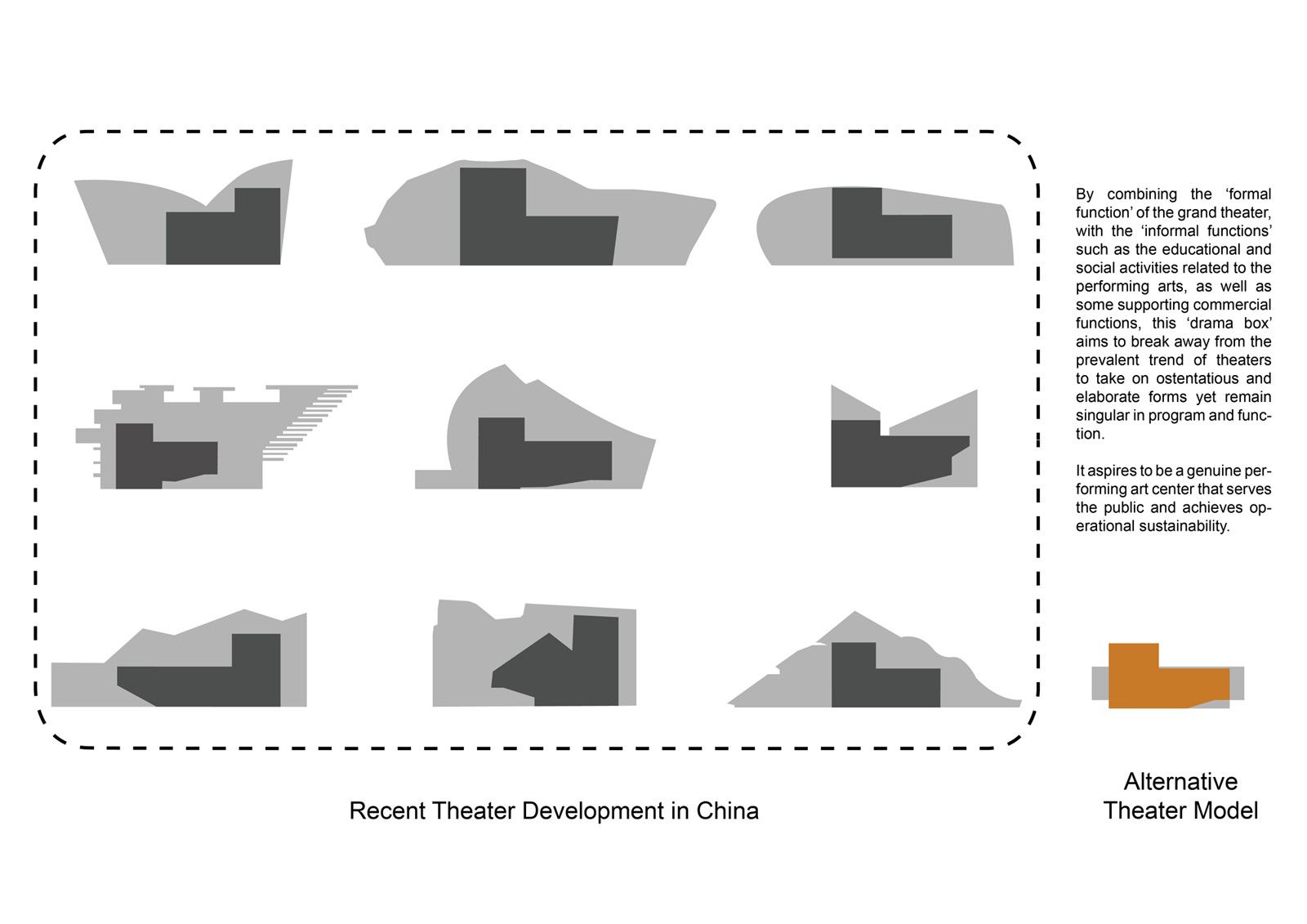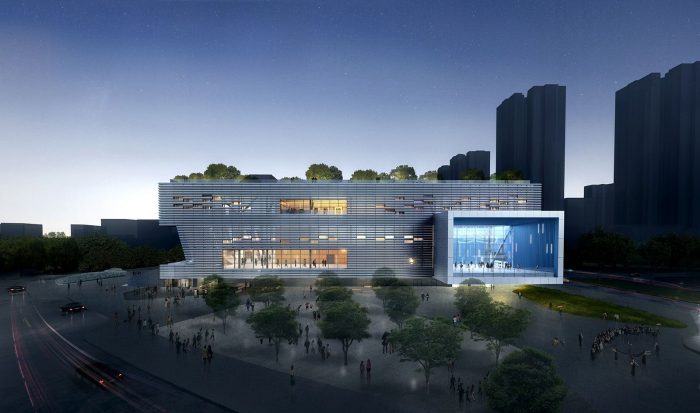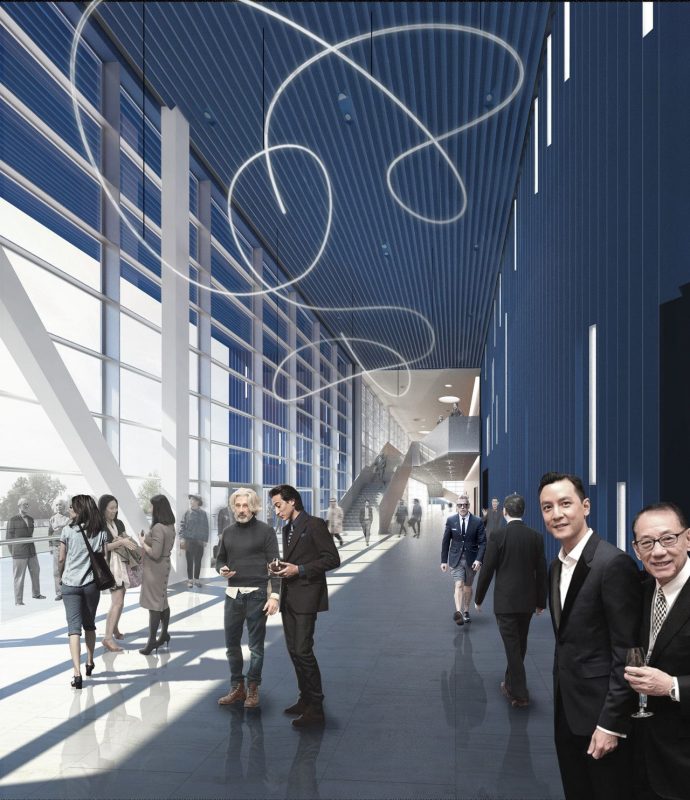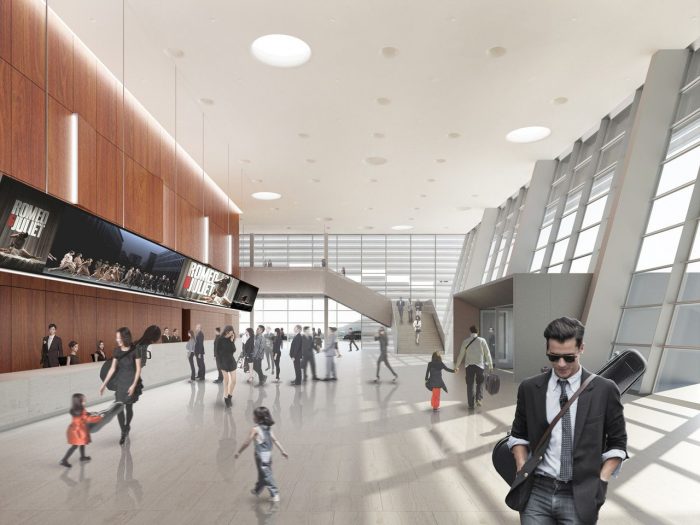Pingshan Performing Arts Center
Over the past decade, theaters have sprung up everywhere along with China’s economic growth and rapid urbanization. Most of them have exaggerated appearances with a single function and monotonous spaces and are often far detached from the public and the urban life, thus becoming a tremendous waste of public resources. OPEN won the competition to design the first theater in Pingshan, a new urban district of Shenzhen. This gave us a chance to take a critical look at the development of the Chinese theaters, in order to explore a new possibility.
OPEN modified and reorganized the given program, by combining the “formal function” of the grand theater, with the “informal functions” such as the educational and social activities related to the performing arts, as well as some supporting commercial functions. A small black box theater is also added to serve as a flexible and multi-functional performance space. By breaking away from the single function typology, Pingshan project is transformed into a real performing art center that serves the public and achieves operational sustainability.
The discourse of the architectural spaces develops around the “formal” and the “informal” functions. Within a rather tight site, we organized the rich programs into a floating square box measuring 80 meters on each side. Flanked by the curving road that separates the site from a large park on the east and south sides of the building, this “drama box” naturally creates two plazas – the entrance plaza facing south and another plaza facing east, both with an open view to the adjacent park.
The core of the drama box is a “formal” opera house with 1200 seats. One can enter a public promenade surrounding the core through both plazas. The promenade twists and turns, connecting all the “informal” components, including the educational spaces relating to the performing arts, the rehearsal rooms on different levels, the black box theater, the multi-purpose hall on the top, and gardens on different floors. It also helps to create an interesting dialogue between the building and the surrounding urban and natural settings.
The theatrical contents and spaces are projected onto the facade of the “drama box” through a translucent skin, producing a rather “theatrical” appearance in the urban surrounding. The building facade is made of a double-layer complex ecological skin designed for the climatic conditions in Shenzhen. The outer layer is V-shaped perforated aluminum panels, which will effectively block out the sunlight in summer, and maintain adequate visual permeability and natural ventilation. At night, it reveals the indoor activities behind while integrating information and digital art display, the ecological skin turns into a drama skin at night.
This porous drama box, a pleasant environment will be created by introducing a variety of vegetation in outdoor gardens and platforms on different levels of the building. Combined with a series of energy-saving measures such as rainwater collection, solar energy utilization, and permeable paving, this performing art center aspires to break the convention notion of theater as an energy hungry building typology.
Project Info.
Architects : OPEN Architecture
Principals In Charge : Li Hu, Huang Wenjing
Location : Shenzhen, China
Year : 2015
Photographs : OPEN Architecture
Project Type : Cultural
Status: Under construction
